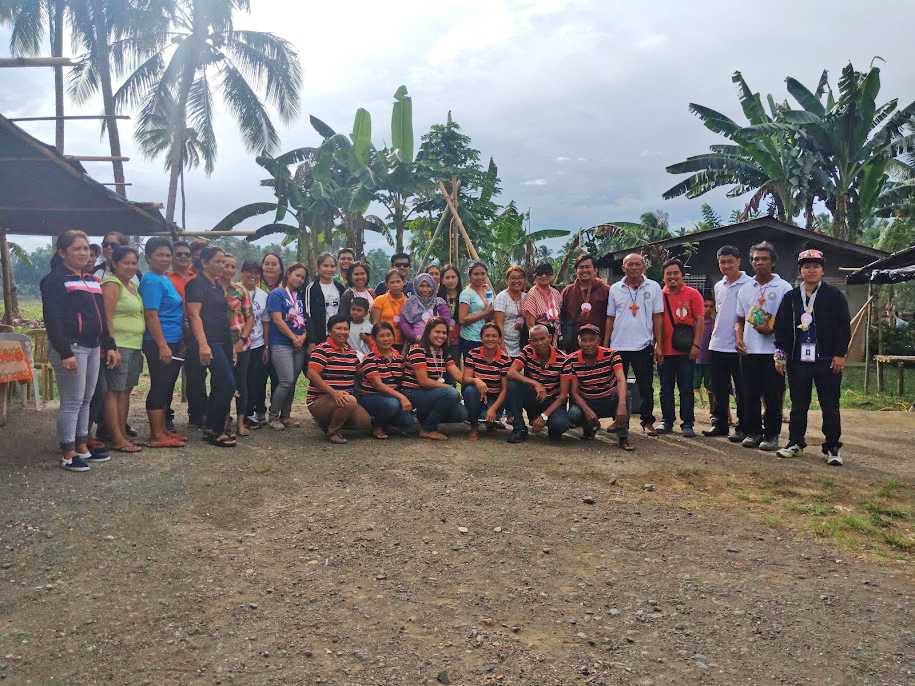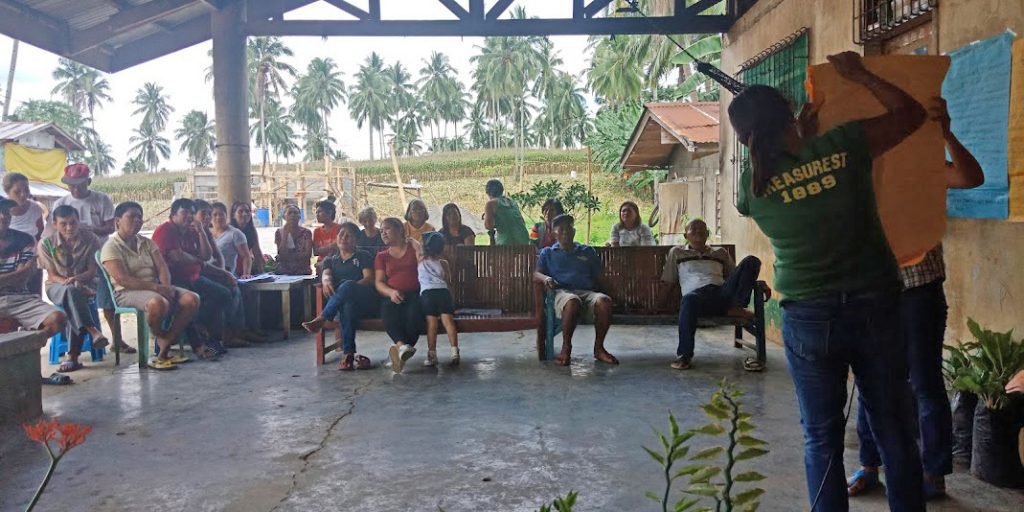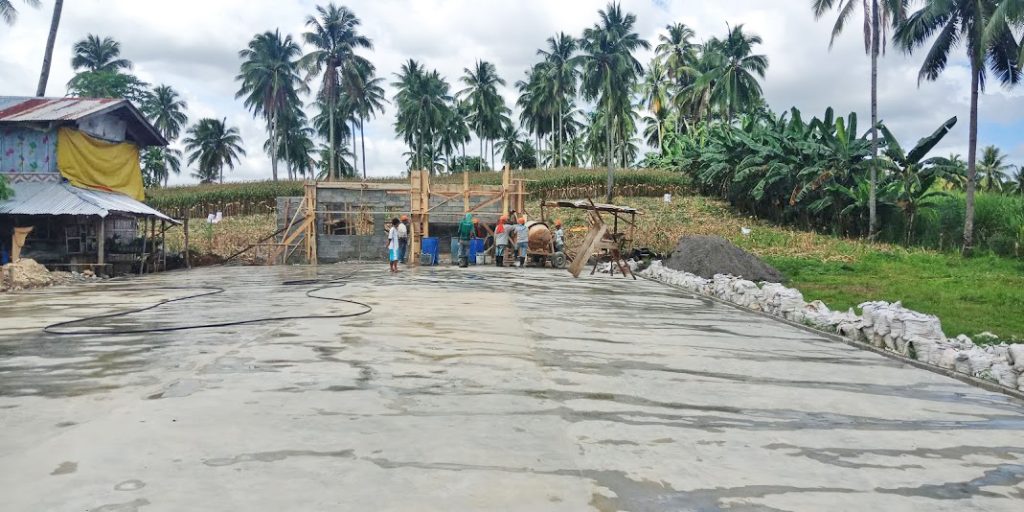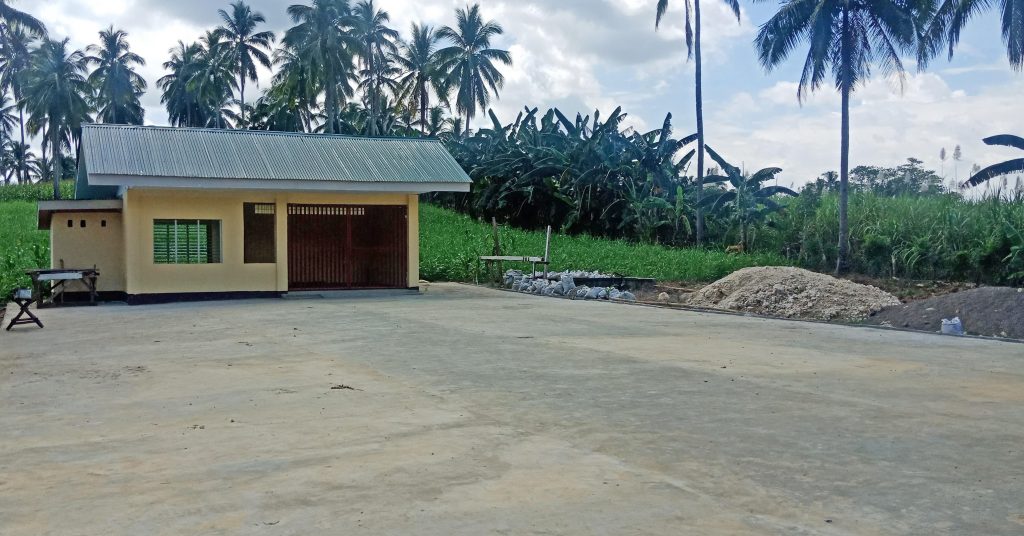Story by Marilou G. Gonzaga, Community Empowerment Facilitator & Krizzia Lynn L. Magaway, Municipal Coordinating Team
Community Empowerment Facilitator
Farming serves as one of the biggest source of income for Filipinos. Despite modernization, the Philippines still thrives in agriculture.
The Department of Social Welfare and Development (DSWD) through Kapit-Bisig Laban sa Kahirapan Comprehensive and Integrated Delivery of Social Services (Kalahi-CIDSS) National Community-Driven Development Program (NCDDP) provides a program to our farmers for the continual progress of our agricultural system.
Barangay San Antonio East, Don Carlos, Bukidnon is known as an agricultural municipality, incidentally, it was during the harvest season when DSWD Kalahi-CIDSS workers introduced the program to the community.
A series of barangay assemblies were conducted giving the residents a glimpse of the myriad of possibilities this community empowerment program brings to San Antonio East. One of the program’s unique features is the Participatory Situational Analysis (PSA). This is a process in the DSWD Kalahi-CIDSS where community volunteers undertake community-level research, identify the key factors in the community that cause poverty, and identify a range of possible solutions to address these problems.

The PSA resulted with the community agreeing that their community sub-project should be a solar drier with warehouse. This would help boost the farmers’ income in the community as there would now be a nearby facility to dry their agricultural products.
“Mao gyud ni ang labing maayo ug makatabang pagdaku sa kadaghanan sa katawhan dinhi sa among komunidad, aron dili na maglisod pa sa pagbulad sa among mga abot (this is really good and will really help the majority of the people in our community, it will no longer be difficult for us to dry our farm products)” says one of the farmer leaders in the community, Arturo V. Abregana, a former Barangay Captain who is now a DSWD Kalahi-CIDSS Barangay Sub-project Management Committee (BSPMC) Chairperson.
The solar drier facility will benefit at least 200 households in San Antonio East.

the status and progress of the sub-project construction
The volunteers in the community worked hand-in-hand and participated in processing documents and other necessary preparations to make sure their community sub-project proposal is realized.
However, during the 1st Municipal Inter-Barangay Forum (MIBF), San Antonio East’s proposed community sub-project was not prioritized.
The MIBF is a practice on collective decision making and ensure that the resources will fund projects that are most needed in the municipality.
It also serves as the venue for the processing of experiences brought about by project prioritization and other activities. It is also one of the venues for the resolution of complaints/grievance related to the violation of policies, principles and implementation guidelines.
This did not stop the community. The next MIBF gave another opportunity to the community volunteers of San Antonio East, Don Carlos, Bukidnon. This time, the community sub-project earned a spot as one of the prioritized barangays – without hesitation, the barangay committed to contribute for the remaining amount in order for their vision to be realized – this is also known as the Local Counterpart Contribution (LCC).

The 14.00 x 28.00 meter solar drier with 32 square meter warehouse facility is funded through the DSWD Kalahi-CIDSS with a P1,114,016.98 grant and a P313,251.43 local counterpart from Barangay San Antonio East.
The community encountered a lot of problems during the implementation and construction of the sub-project, which started in May of 2018, brought about by heavy rains and other weather disturbances, but the resilient community volunteers pulled through and finally completed the construction of the facility in November of 2018.

Community-Driven Development (CDD) is an approach that gives the community control of the development process, resources and decision making authority and regarded as the best assessors of the needs that their communities. The communities also have the responsibility of implementing, managing, and operating the sub-projects they have planned as well as maintaining them.
DSWD Kalahi-CIDSS ensures that communities are actively involved in the process from start to end. Not only are they given direct access and control of the funds for their community projects, they also have the opportunity to participate in making key development decisions for their communities.
In the Philippines, CDD is implemented through the Kapit-Bisig Laban sa Kahirapan Comprehensive and Integrated Delivery of Social Services – National Community-Driven Development Program (Kalahi-CIDSS NCDDP) under the Department of Social Welfare and Development (DSWD).
The DSWD Kalahi-CIDSS and its community volunteers are advocating for Community-Driven Development (CDD) institutionalization in the local governments for the continuation and sustainability of its gains and empowered communities.


